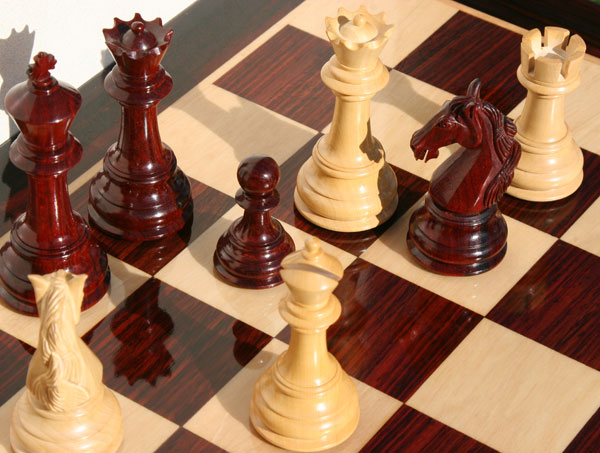Hello Friends! Thanks so much for stopping by and visiting my blog, Stock Picks Bob's Advice! As always, please remember that I am an amateur investor, so please remember to consult with your professional investment advisers prior to making any investment decisions based on information on this website.
 This afternoon I received a twitter from my son Ben, who asked me about what I thought about the recent article by Jeffrey Goldberg in the Atlantic, "Why I Fired My Broker". Goldberg laments the failure of his Merrill Lynch broker who seemingly was unable to anticipate the market implosion and he cynically visits with investment gurus from George Soros to a survivalist who tells him to buy 'things' and not have any debt.
This afternoon I received a twitter from my son Ben, who asked me about what I thought about the recent article by Jeffrey Goldberg in the Atlantic, "Why I Fired My Broker". Goldberg laments the failure of his Merrill Lynch broker who seemingly was unable to anticipate the market implosion and he cynically visits with investment gurus from George Soros to a survivalist who tells him to buy 'things' and not have any debt.
Mr. Goldberg suffered along with most Americans who had believed that investing for the long-term was the only way to go. One simply had to have the appropriate balance of funds in one's 401k or IRA and then dollar-average over time. It didn't work out well for Goldberg and even in my own retirement accounts that I have actually been doing more or less the same thing it hasn't been working out well. It turns out this time there has been 'no place to hide' and diversification and dollar-cost-averaging hasn't protected anyone very well.
As a biology major in college, and as an observer on the current political scene, I have been quite aware of the struggle regarding the teaching of the origin of humans on this planet. The controversy is divided between those who believe a divine origin is key; they go by the name of Creationists or lately it has been popular to refer to them as "Intelligent Design" advocates.
As the Intelligent Design website explains:
"The theory of intelligent design (ID) holds that certain features of the universe and of living things are best explained by an intelligent cause rather than an undirected process such as natural selection."
 In opposition to this theory are those who believe in the principles best enunciated by Charles Darwin of the natural selection process or simply stated 'survival of the fittest'. These are the Evolutionists who pit their views against the 'central planning' approach of the Creationists.
In opposition to this theory are those who believe in the principles best enunciated by Charles Darwin of the natural selection process or simply stated 'survival of the fittest'. These are the Evolutionists who pit their views against the 'central planning' approach of the Creationists.
As this website explains:
"His explanation that evolution occurs as a result of natural selection implied that chance plays a major role. He understood that it is a matter of luck whether any individuals in a population have variations that will allow them to survive and reproduce."
You might now be asking, 'What does all of this have to do with investing?'
Everything. Intelligent Design in portfolio construction assumes a higher intelligence in building an appropriate mix of investments that can be followed long-term except for an occasional 'rebalancing.' This approach assumes that it is impossible to time the market because one cannot know when to get in and out of equities. In addition, it is also impossible to know what to put your money in and if per chance one of your holdings does somehow outperform the other, well you better go ahead and pull some cash off of that and allocate it to the under-performing investment.
It has been my attempt to manage my portfolio by observing the actions of the individual holdings in my account (which of course I use my own intelligence in adding them to the mix) and letting them determine their own future of either dominance or extinction as they respond to the changing financial environment they face! This is the 'natural selection' approach to my investing. Stocks that do well stay and are least penalized. Those that do poorly are selected against and eliminated.
 Perhaps I can suggest two popular board games that might provide another perspective on this. Consider the two games of Battleship and Chess. I have played both and have enjoyed the challenge.
Perhaps I can suggest two popular board games that might provide another perspective on this. Consider the two games of Battleship and Chess. I have played both and have enjoyed the challenge.
However, in Battleship, the idea is to set up your ships in a static fashion and then to weather the onslaught from your opposing player in as good a fashion as possible. You set up your ships and you sit there. So with allocation in portfolios. You set up your mix of investments, you dollar cost average, and then you sit there come what may. And a great big old bear market may arrive and eat you up!
 However in Chess, you also set up your positions in a rather standard fashion. After that most bets are off. Your strategy changes as your environment changes being the positioning of your opponent.
However in Chess, you also set up your positions in a rather standard fashion. After that most bets are off. Your strategy changes as your environment changes being the positioning of your opponent.
O.K. so it isn't an exact comparison! But I am sure you get the idea.
I do know that if I am to 'time the market' I cannot rely on my own psyche at that time. I feel the worst when the market is at the lowest and I share the problem of being the most euphoric as the market tops. So how is an investor to respond?
Instead of portfolio construction by Intelligent Design, I would suggest that we 'design intelligence' into our portfolio management systems. My own thinking was affected by Robert Lichello and his AIM system who thought an investor should have two 'pots' of funds, one being cash and the other equities. He mechanically prescribed a system for shifting between the two in a form of value averaging. Furthermore, I do not want to remove the utility of identifying quality stocks for inclusion in my portfolio. I have been influenced as well by William O'Neil and his CAN SLIM approach. He also knew the importance of "M" or "Market" in determining one's bias. He also has suggested that observing the actions of your own stocks might reveal the "M" in the Market. Furthermore, there are indeed differences between stocks and consistency in financial results and reasonable valuation evaluations are not to be scoffed.
Goldberg got into trouble by taking positions in companies and blindly holding on. He watched his investments decline and his contempt for advisers grow. He was playing battleship and his ships were sinking. What was missing was an 'exit and entrance strategy'. He needed the dynamic approach in investing that a 'Bishop, Rook, or Queen' has in a chess game. That is, knowing when he could and would sell both on the upside and downside with each of his investments. He could be able to determine when he should be in cash and when he should be in equities.
It doesn't have to be a decision that we each individually make. Rather, these decisions are made 'on the go' depending on the performance of the market, and the performance of our individual holdings. We cannot control the market, the price changes of any of our stocks, but we can control our own response to those movements. And like Darwin, with careful observation we will be able to utilize the environmental pressures acting upon our own portfolios to hopefully evolve our holdings into something much greater than what we started with.
So when examined microscopically, my 5 share sale of 3M and my subsequent purchase of Colgate stock may seem to be insignificant and devoid of significance. But these actions are part of a greater strategy designed to produce something far more important--a rational approach to selecting holding and responding to the stock market. I know that is a big goal for an amateur like myself, but I am up to the challenge!
Yours in investing,
Bob
Updated: Sunday, 26 April 2009 7:52 PM CDT








